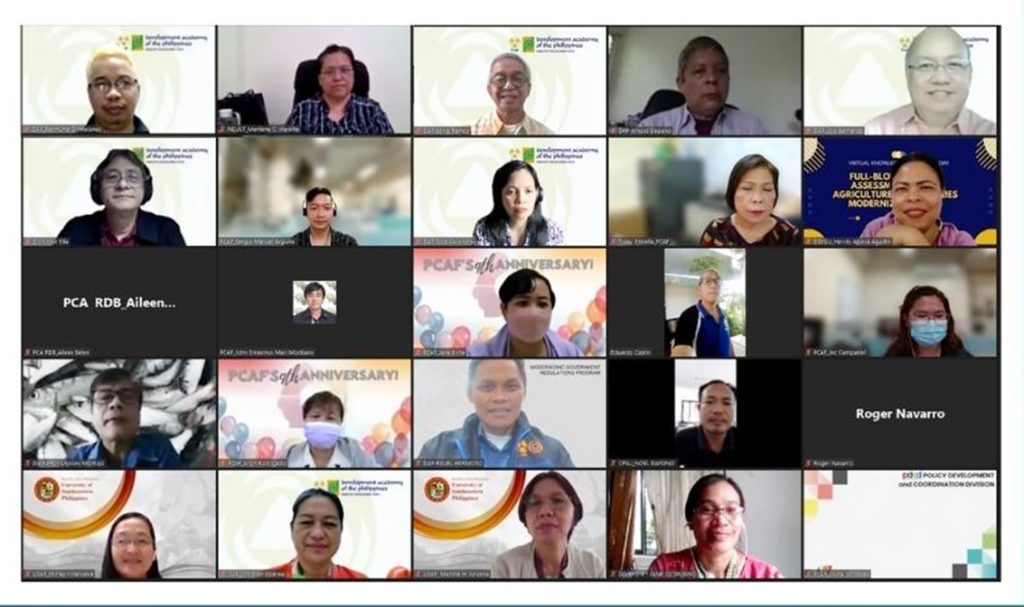
In celebration of the nine wonderful years of transforming Philippine Agriculture through broad-based participatory governance, the Philippine Council for Agriculture and Fisheries hosted an online Knowledge Unloading Day (KUD) on the Full-Blown Impact Assessment on the Agriculture and Fisheries Modernization Act (FBIA on AFMA) on June 29, 2022.
The KUD aims to disseminate the results of studies done by experts and to advocate for support in implementing the policy and program recommendations toward a more conducive and enabling environment.
Joining the KUD were representatives from state universities and colleges, national and regional Agricultural and Fishery Councils, and the Department of Agriculture’s attached bureaus, agencies, and corporations.
PCAF commissioned the Development Academy of the Philippines (DAP) to conduct the FBIA on AFMA to evaluate the policies, plans, and programs under AFMA, as well as review the current state of the agri-fishery sector to recommend sound policy reforms for future directions of plans and programs.
The study team presented the findings and recommendations of the AFMA’s components including Governance and Regulations, Budget and Finance, Strategic Agriculture and Fisheries Development Zones, Agriculture and Fisheries Modernization Plan, Credit, Information and Marketing Support Services, Irrigation, Other Infrastructure, Product Standardization, and Consumer Safety, Human Resource Development, Research Development, and Extension, Rural Non-Farm Employment, and Trade and Fiscal Incentives.
One of the key results of the study is the connection between AFMA adoption of barangays and the perceived improvements in the lives of its residents. According to the assessment, various farming and fishing families from barangays that adopted AFMA more intensely have reported that their living conditions are substantially better now, with improvements in terms of regular income, job and training opportunities, access to schools, and even electricity cost.
The FBIA on AFMA recommended ways forward toward a more technology-based Philippine agriculture sector. Farmers and fisherfolk could benefit from more training and access to farming technologies, micro-enterprise development and management, and microfinance.
In relation to microfinance, Dr. Ma. Piedad Geron stated that although the government is now reviewing the operations of the Philippine Crop Insurance Corporations, there is a need to harness the efficiencies of the private insurance companies in delivering agricultural insurance.
Director Monica Saliendres of DAP’s Productivity Development Research Office also recommended more advocacy support and people’s participation in agricultural commodity production.
“Even though there is strong support for commodities like rice, a lack of participation in the planning process prevents the effective deployment of available resources, since the real needs of farmers are not communicated,”said Dir. Saliendres.
One of the notable observations of the KUD participants was to include a regional perspective on the impact assessment, given the shift in the roles of the national government agencies and the local government units in relation to the implementation of the Mandanas-Garcia Ruling.
In response to this, DAP said that the study has regional data, however, it was interpreted from a national perspective. PCAF has also provided the participants with an e-copy of the study for their reference. | SMA











